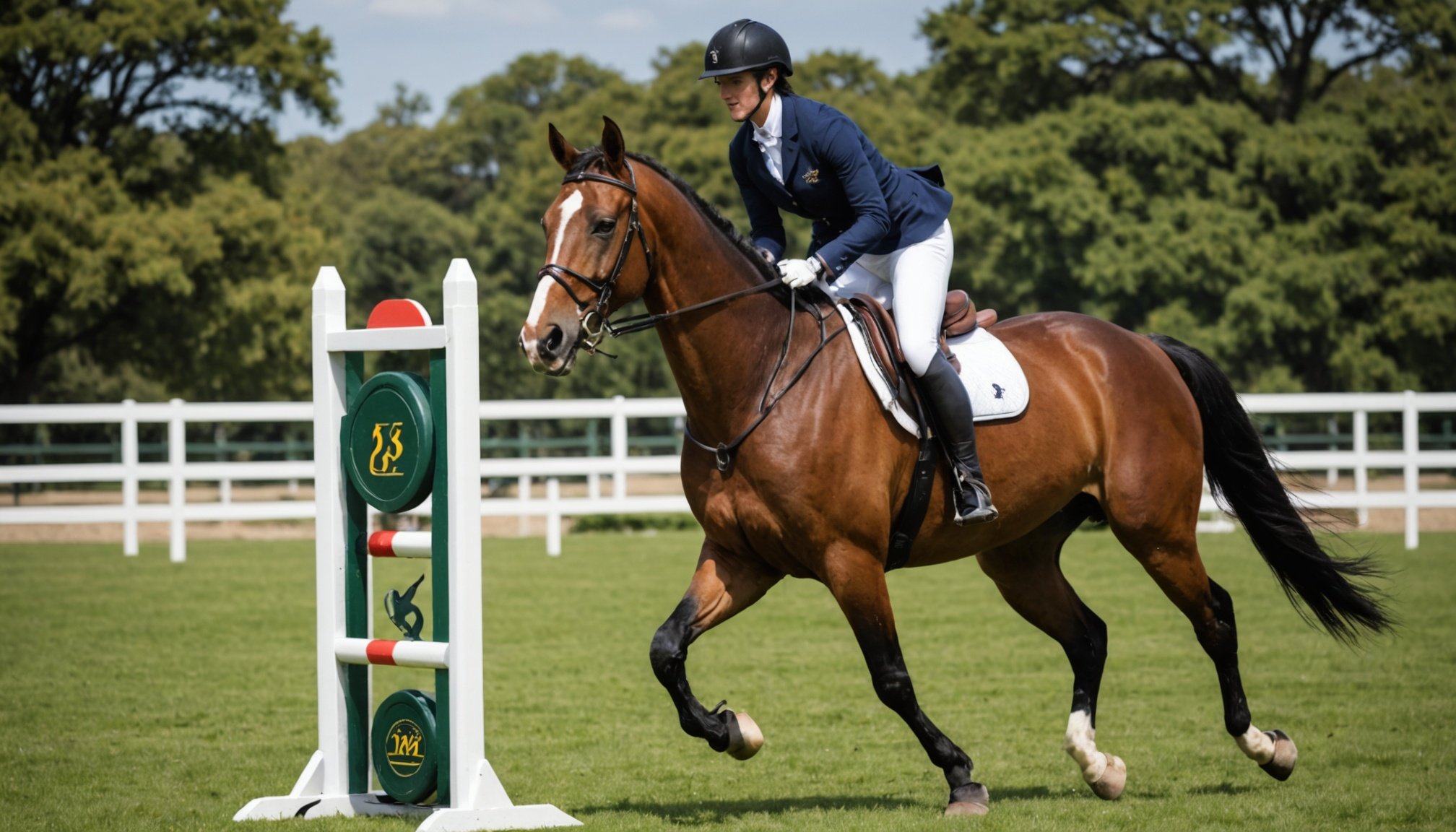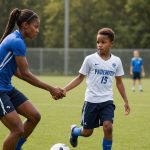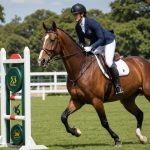The Importance of the Horse-Rider Bond
The horse-rider relationship is a fundamental component in equestrian activities that significantly influences performance. This connection goes beyond mere physical interaction, encompassing a profound psychological connection. Riders who cultivate strong bonds with their horses often find that this partnership enhances their overall equestrian dynamics. Such dynamics are crucial for synchronising movements, understanding cues, and achieving better results in competitive scenarios.
An integral aspect of this bond is emotional well-being. When both the horse and rider are emotionally attuned to one another, performance is greatly enhanced. Horses, being sensitive animals, can pick up on a rider’s emotions, which can either positively or negatively affect equestrian dynamics. A calm and confident rider helps to foster a more focused and relaxed horse, leading to improved outcomes.
This might interest you : How does parental support influence young athletes’ motivation and performance?
Many case studies highlight the benefits of this bond. For instance, riders who engage in consistent positive reinforcement and spend quality time with their horses report better performance enhancement. These studies illustrate how understanding the unique personality traits and emotional needs of a horse can lead to heightened success in events. Clearly, a robust horse-rider relationship is not just an advantage but a necessity for achieving peak performance.
Training Techniques for Enhanced Bonding
Building a strong bond with your equine partner is essential for successful equestrian training methods. By incorporating bonding exercises and focusing on trust-building, riders can enhance their connection with their horses and improve performance.
Also to read : Secure your gains: key injury prevention techniques for powerlifters
Groundwork Drills
Effective groundwork exercises lay the foundation for a positive relationship. These exercises include leading, lunging, and longing, which develop communication between horse and rider. Groundwork benefits the emotional connection by promoting mutual respect and understanding. Incorporating trust games, such as obstacle courses or gentle grooming practices, helps build reassurance and familiarity.
Riding Practices
During riding sessions, techniques that encourage cooperation and understanding are invaluable. The use of positive reinforcement, like rewarding a horse for correct responses, fosters willingness. Consistent communication cues are crucial; horses learn to interpret signals through repetition and clarity, establishing a language that boosts trust.
Problem-Solving Strategies
Identifying and addressing behavioral issues is a vital part of the training process. Recognize changes in a horse’s conduct to tailor your approach. Overcoming performance anxiety involves patience and gentle exposure, gradually increasing challenges while providing reassurance. Employ collaborative problem-solving approaches to tackle any hurdles, considering both rider and horse’s perspectives, ensuring a harmonious training environment.
Bonding Activities That Strengthen Relationships
Strengthening the bond between humans and horses requires a collection of thoughtful relationship-building activities that centre on shared experiences and attentive care. One key activity to consider is regular grooming, which can significantly enhance the human-equine connection. Grooming involves more than just brushing; it offers a chance to engage in attentive care routines that encourage trust and familiarity. Techniques such as speaking softly or humming while grooming can make this routine a shared experience, dissolving barriers and fostering closeness.
Moving to leisure activities, enjoyable outings such as trail rides can significantly contribute to recreational bonding. These experiences not only invigorate the horse but also allow both parties to relax and enjoy each other’s company. Additionally, creative activities like playing games with your horse, engaging them in obstacle courses, or simply spending time together off the saddle can further strengthen the relationship.
Furthermore, the inclusion of mental and physical exercises can also greatly benefit the bond. Equine-assisted learning opportunities provide a platform for mutual growth, where both horse and human learn from each other. Incorporating mindfulness in riding practices, such as focusing on synchronisation and breath, builds patience and understanding. These exercises are pivotal in cultivating a harmonious and gratifying partnership.
Psychological Insights for Athletes and Horses
Equine psychology involves understanding horses’ emotions and stress responses, which are akin to the dynamics between rider performance and mental health. An athlete must comprehend how a horse perceives its environment and reacts to various stimuli. Recognising these emotional cues is critical to ensure optimal interaction and performance.
For instance, equine stress can be caused by environmental changes, unfamiliar routines, or demanding exercises. Horses typically exhibit stress through physical signs like increased heart rate or behavioural changes. Acknowledging these signs allows riders to better manage equine stress and foster a more conducive environment for training and development.
Rider mental health plays a pivotal role in enhancing performance psychology. Mental well-being impacts decision-making, focus, and emotional resilience. When riders are calm and centred, they improve their ability to communicate effectively with their horses, creating a harmonious partnership.
Techniques for syncing emotional states between horse and rider are essential. This can be achieved through conscious breathing exercises, mindfulness activities, and establishing consistent training routines, which help riders stay attuned to their horse’s psyche. By tuning into their equine companions and maintaining mental well-being, riders can create a more intuitive and effective connection, ultimately boosting overall performance.
Expert Advice and Testimonials
Understanding the dynamics of equestrian partnerships often begins with valuable expert insights and testimonials from those deeply rooted in the world of equestrian sports. Let’s explore what equestrian coaching can offer to enrich your journey.
Trainer Recommendations
Experienced equestrian trainers often stress the importance of communication in forging strong bonds with horses. According to testimonials from seasoned coaches, adopting a patient and empathetic approach significantly boosts mutual trust. One trainer recommends, “Consistency in cues and commands ensures that the horse feels secure and understood.”
Professional riders share their best practices, advising regular groundwork to establish credibility. Another insightful trend from expert testimonials is the emphasis on personal reflection during training sessions. Understanding what strategies worked can lead to more targeted, improvement-driven sessions.
However, even experts notice common pitfalls. Over-training can lead to a breakdown in communication, causing distress for both rider and horse. Rushing this intimate bonding process often results in setbacks rather than growth.
Athlete Experiences
Athletes frequently share rich personal success stories, detailing how perseverance played a key role in their equestrian achievements. From rigorous training schedules to unique methods, these accounts highlight roads less traveled, ensuring a diverse pool of strategies for aspiring riders.











